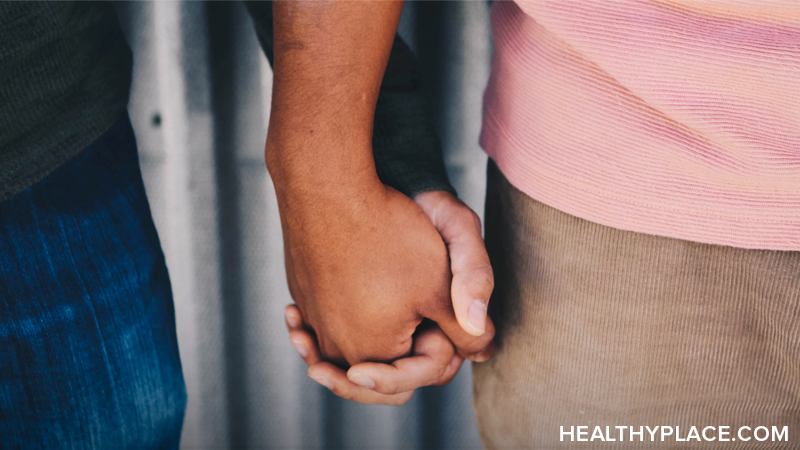Explaining Self-Harm Scars to Your Boyfriend

Explaining self-harm scars to your boyfriend (or any romantic partner) can be a daunting prospect to face. How do you know whether you're ready to disclose your past, and what can you expect when you do?
When to Explain Self-Harm Scars to Your Boyfriend
I'm lucky, in a way. My self-harm scars are small, pale, and next to invisible against my fair skin. If I never brought them up, there was a good chance my boyfriend might never have even noticed they were there. I had a choice not every person who self-injures gets; for those whose self-harm scars are obvious, the only choices may be disclosure or deception. I had a third option: silence.
So why did I bother explaining my self-harm scars to my boyfriend at all?
There was no flashing green light that told me when to "go." I didn't even plan "the talk" ahead of time. What I did consider, before we talked, was whether I wanted to have that conversation in the first place. Having never really shown anyone my scars before, it took me a while to decide that I was ready to do so. It was a decision made gradually as our relationship progressed, and my trust in it (and him) grew.
When it finally happened, however, it was impromptu. We had a quiet moment together, just the two of us, talking about things both small and significant. And I knew that I wanted him to know because I needed him to understand where I had come from and never wanted to go back to.
For you, the decision to explain self-harm scars to your boyfriend or other romantic partner might be made in increments, as mine was, or you might make your mind up all at once. There is no golden rule for when to disclose a secret as intimate as this. But I do encourage you to consider the possibilities carefully before you do; once you share it, you cannot take it back.
Explaining Self-Harm Scars to Your Boyfriend: What to Expect
Again, every relationship, like every person, is different. I can't look into a crystal ball and tell you what will happen if and when you choose to disclose your history of self-injury with your partner. Any of the following might happen:
- Acceptance: You might be pleasantly surprised, as I was, at how well "the talk" might go. Of course, if you love and trust this person, it shouldn't be too much of a shock, either.
- Denial: Your partner might find it difficult to understand what self-harm is or why you would hurt yourself. It may take some time, and some in-depth explanation, to get your full meaning across.
- Rejection: It would be unkind of me not to admit that this is a possibility. Unfortunately, there are a variety of reasons why your partner may not take your disclosure well, including upbringing, cultural or religious beliefs, and stigma. In some cases, this is a hurdle that can be overcome with time, patience, and communication, but not always.
It is absolutely okay not to open up about your self-harm just yet if you do not feel the time is right yet. Especially with a new relationship, it is well worth having a little patience and seeing where things go before you decide.
However, I also believe that any partner worth staying with will ultimately be able to accept you and your history of self-harm, even if the person does not fully understand the psychology behind it. I feel incredibly lucky to have found someone who was able to handle my disclosure with more empathy than I ever expected, who at that moment made me feel loved rather than ashamed.
I also would have accepted nothing less. I hope you can bring yourself to expect the same. You deserve nothing less, whether or not you believe it yet.
APA Reference
Kim Berkley
(2020, November 26). Explaining Self-Harm Scars to Your Boyfriend, HealthyPlace. Retrieved
on 2026, March 3 from https://www.healthyplace.com/blogs/speakingoutaboutselfinjury/2020/11/explaining-self-harm-scars-to-your-boyfriend